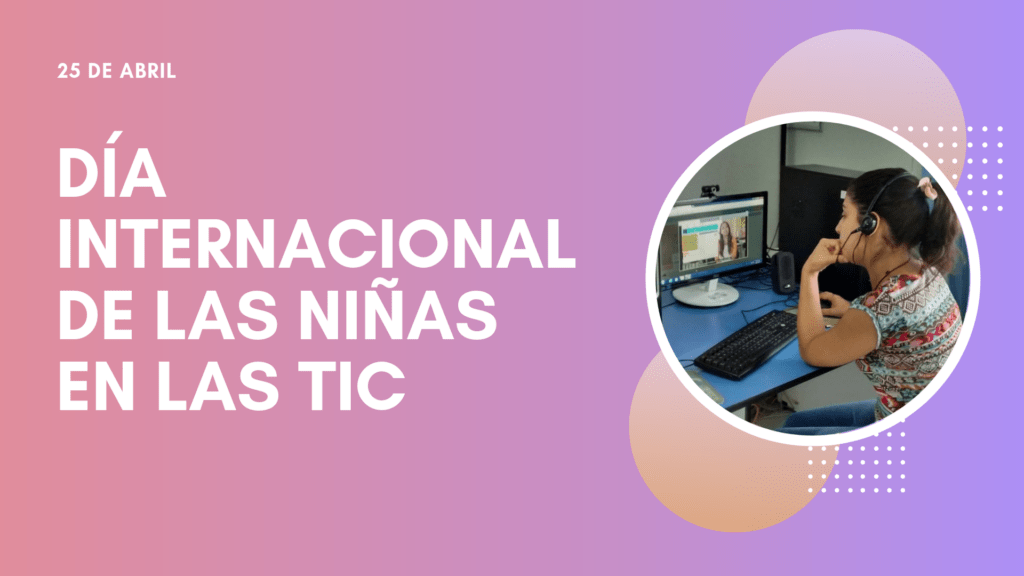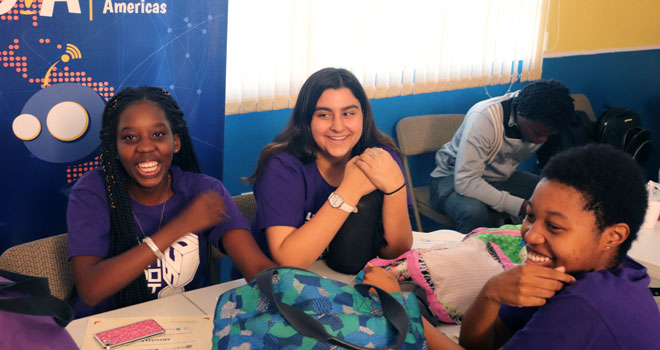Día Internacional de las Niñas en las TIC
25 de abril, Día Internacional de las Niñas en las TIC, con el fin de potenciar e impulsar a las niñas y las mujeres jóvenes a estudiar carreras en el creciente campo de las Tecnologías de la Información y la Comunicación (TIC), The Trust for the Americas, se une a la celebración para eliminar la brecha de género y lograr potenciar y motivar a más mujeres a ser parte del cambio e impulsar su desarrollo. The Trust for the Americas identifica la situación actual como una problemática que exige el trabajo en conjunto de la academia, el gobierno y las organizaciones sociales. Por ello,. a través del proyecto POETA Youthspark, capacita a mujeres de seis países de América Latina y el Caribe, en alfabetización digital y habilidades tecnológicas, con el objetivo de incrementar sus oportunidades económicas. En el 2018 The Trust for the Americas a través de POETA YouthSpark logró capacitar a 4,800 mujeres en habilidades digitales y ciencias de la computación y beneficiar a casi 40,000 mujeres a través del acceso a centros tecnológicos. Uno de los casos de éxito es Andrea Ledesma de Chile, quien creo Tree Leaf, una app que ayuda a los residentes de su comunidad a resolver problemas ecológicos. \”Mi vida cambio completamente porque yo tenía otra expectativa de mi futuro. Yo nunca pensé que estudiaría ingeniería de software\”, comenta Andrea. Su historia es una muestra de que si acercamos a las niñas y jóvenes a la tecnología, ellas pueden descubrir sus habilidades, incrementar los avances del sector tecnológico y aportar al desarrollo de sus comunidades. No obstante, la participación de las mujeres en la tecnología es un desafío actual que tenemos como sociedad. Además de la falta de acceso a educación en tecnología, las mujeres enfrentan otras causas que las han alejado del mundo de la tecnología. Por ejemplo, los estereotipos de género que adjudican diferentes carreras a hombres y mujeres. Otra razón es la ausencia de modelos a seguir en carreras STEM (Ciencia, Tecnología, Ingeniería, y Matemáticas) que puedan inspirar a las niñas a desarrollar su vida profesional en ese campo.Por ello, es importante trabajar juntos para incrementar la participación de las mujeres.
Día Internacional de las Niñas en las TIC Read More »



